Cobh Ramblers not immune to wider changes in Irish soccer as investment talks loom
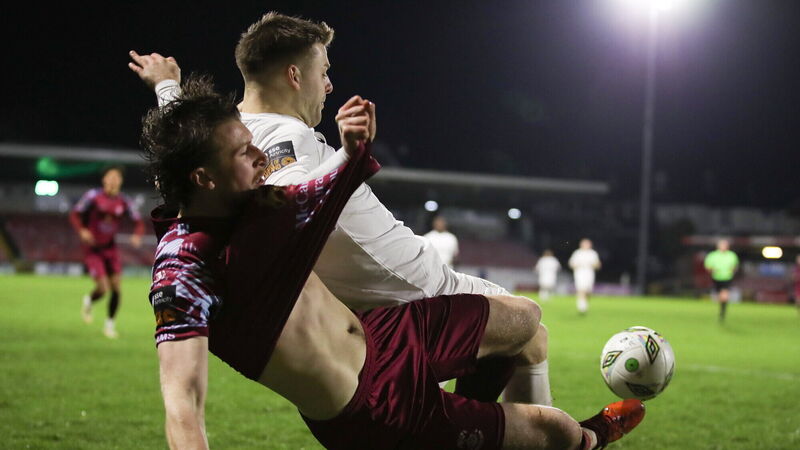
Matthew McKevitt of Cobh Ramblers in action against Dylan Hand of Athlone Town. Picture: Michael P Ryan/Sportsfile
ONCE upon a time it was the saving grace of Irish football, now supporter ownership belongs in the past as more and more clubs move away from the model as they seek additional investment in a bid to remain competitive and operational.
Cobh Ramblers are the latest side to be in this position, with members set to vote on three proposals at an Emergency General Meeting this week at St Colman's Park.
All information about the interested parties is currently being withheld by the board given the confidentiality of the process, but one thing remains certain during this time in east Cork.
The fan owned model has a ceiling, and it is next to impossible to remain viable as a football club with a limited pool of members and sponsors.
It was a different story just over ten years ago, in the aftermath of the Great Recession, as a host of teams were taken under the wing to those who care the most.
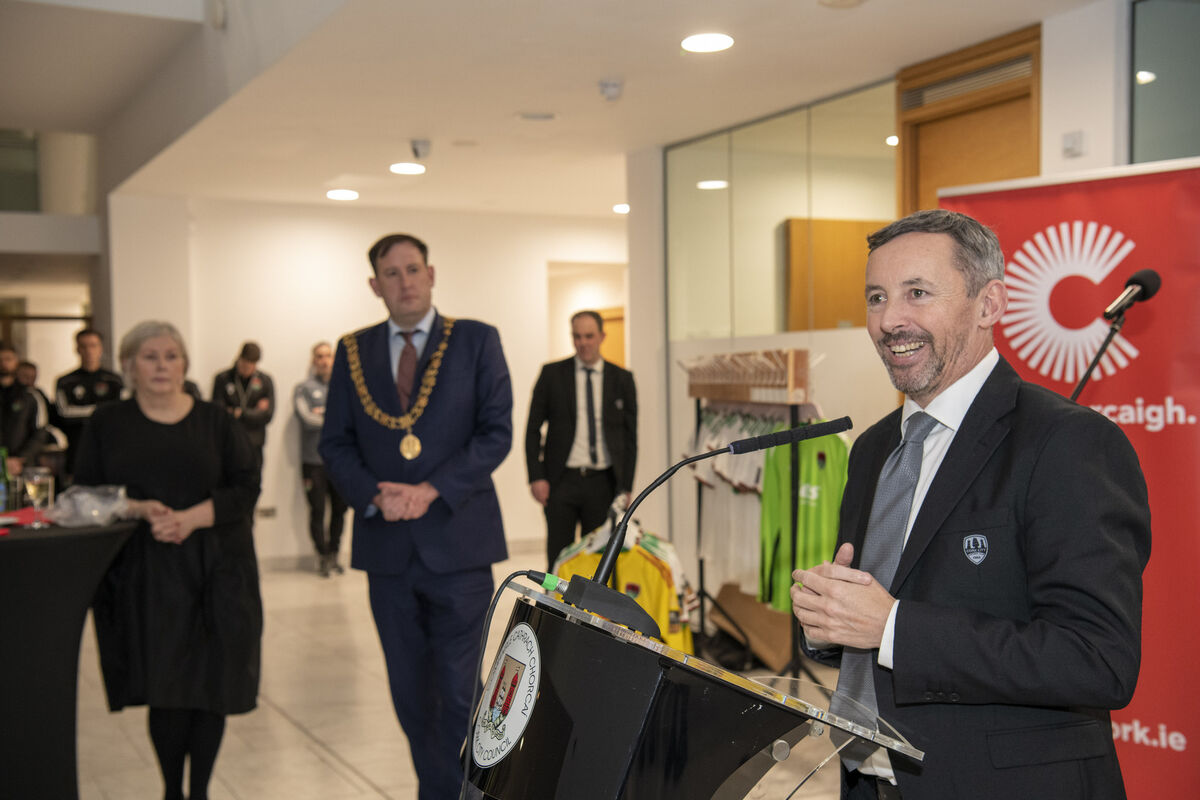
This came about after a number of close calls during a crazy decade involving high spending and a race to become the dominant team in Ireland that regularly plays in the group stages of various European competitions.
Shamrock Rovers were the first to make a statement, with memories of relegation and examinership banished in 2011 when the Hoops became the first Irish side to play in the Europa League.
The possibility of long-term stability through fan ownership was called into question as money came in and markets were inflated.
Dundalk set the tone under Peak6 and Shamrock Rovers picked up the baton once Dermot Desmond’s funds were turned into victory in the FAI Cup in 2019 and four consecutive league titles.
Sporting merit was one thing, benefactors also saw the potential of the League of Ireland as a halfway house as they tried to navigate the rules governing transfers in the aftermath of Brexit.
The other side of this was the rising costs of running a club, something that was brought on by the pandemic and Russia’s invasion of Ukraine.
Clubs looked at this situation, and realised the only option was outside investment as they looked to navigate rising costs and an environment that saw a concentration of wealth with a handful of teams.
Cork City started moving away from the model in 2020, and the process was finalised last year when the FAI approved a takeover of the club by Dermot Usher.
Drogheda United more or less followed, and an acquisition of the Boynesiders by the Trivela Group was completed in late 2023.
Treaty United have also come under new ownership, with one of the newest clubs in the League of Ireland now run by Tricor Pacific Capital.
Cobh held out as more and more clubs began to explore financing options.
Eventually the dam broke in December 2022 and an appeal for investment was launched after a season that saw the club finish outside the play-offs during their centenary year.
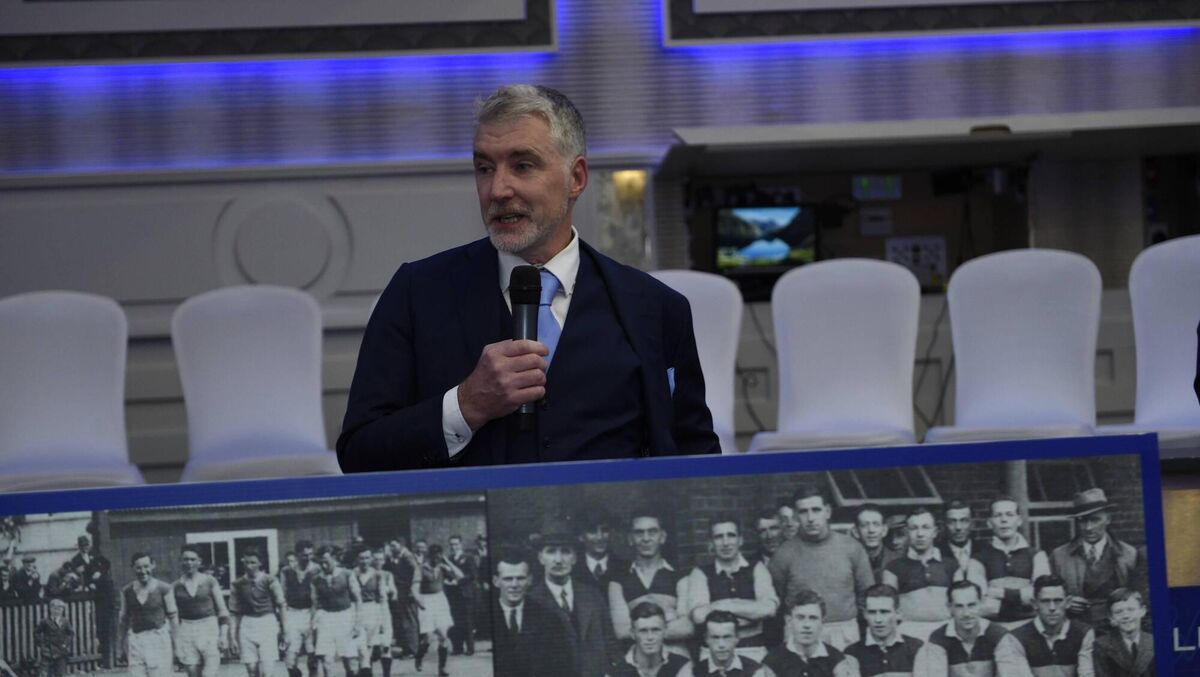
“In order for us to now execute our growth plans and actualise our ambitions we do require inward investment,” a statement at the time read.
“We are now welcoming enquiries from investors in this regard and are open to a variety of investment models going forward.”
The Ramblers squad was pulled apart, with two players going to Cork City and another joining Shamrock Rovers. Shane Keegan also said goodbye to St Colman’s Park, with the Portlaoise native unable to continue in his current role over work commitments.
This is one side of a football club, the additional costs of running an academy and a women’s team also need to be considered. This means an appeal for investment isn’t about having a successful men’s team, it’s about the club as a whole.
There’s no guarantee that Cobh will be taken off the fans and given to a private company, investment could just mean a small percentage of the overall club coming under the ownership of a group.
This means a lot of talk and a lot of speculation, and supporters can take comfort in the meantime by the simple fact that nothing stands still in Irish football in situations like this, and trends are quite common across the board. No one is immune in situations like this, not the most successful club in the country or one of the oldest in Munster.
Cobh will always belong to the fans and nothing will change that, outside investment is just the next step in the club’s overarching plan.



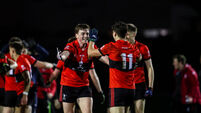


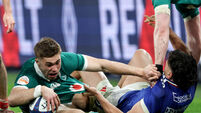



 App?
App?







